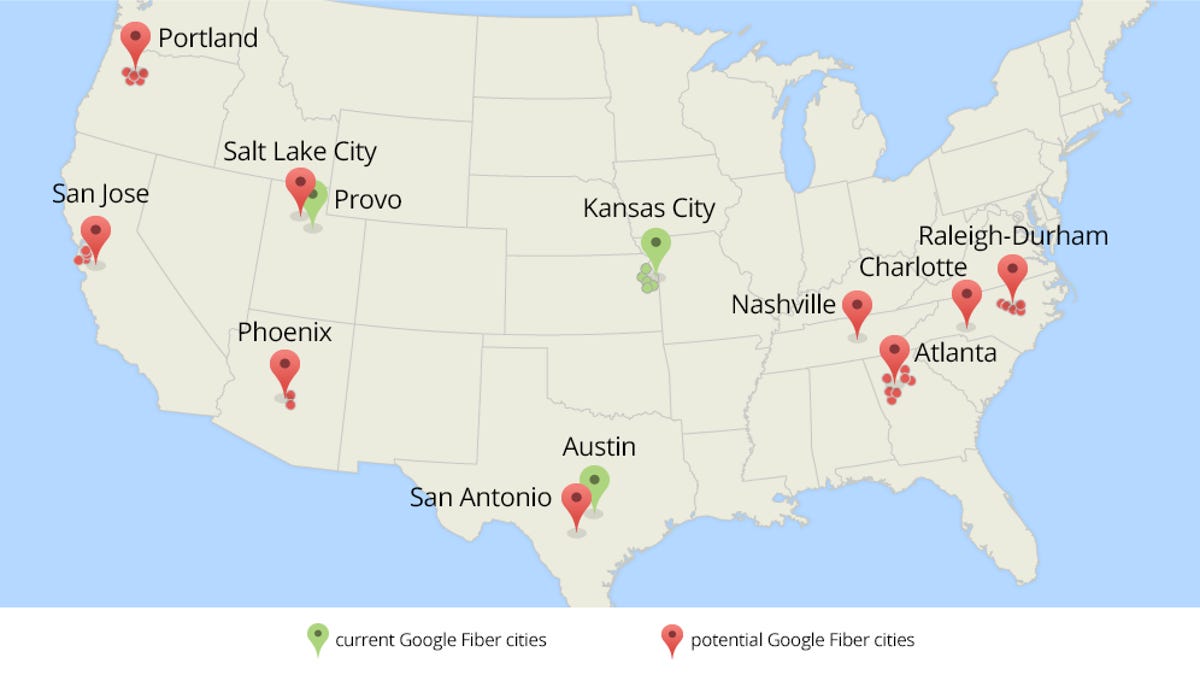Google Fiber bulks up with plans for 9 more regions
Google reveals plans to expand its gigabit Internet network to nine more urban areas, covering 34 cities.

Google Fiber could be coming to your hometown, a move that feels a bit like playing in the bandwidth lottery, as the company announced Wednesday nine more locales that are being considered for its gigabit Internet network.
The nine regions cover 34 cities and include San Jose, Calif.; Portland, Ore.; Salt Lake City; Phoenix; Atlanta; Nashville, Tenn.; San Antonio, Texas; Charlotte, N.C.; and Raleigh-Durham, N.C.
Heather Burnett Gold, the president of Fiber to the Home Council of North America, said that the announcement indicates that the United States is at a tipping point toward greater gigabit network adoption.
"We're starting to see gigabit envy," she said, as more cities become interested in the benefits of gigabit networks. "Google's going to work with all these communities simultaneously, building a compendium of best practices."
Speaking with CNET from a Fiber to the Home conference in Stockholm, she said that analysts there think that the US will have gigabit speeds available to 14 percent to 20 percent of its citizens by 2019.
Even if a city or town opts to not contract with Google Fiber, Gold said, "we'll have a real road map for communities" on how they can prepare for gigabit Internet.
Milo Medin, vice president of Google Access Services, wrote in the blog post announcing the expansion that Google is working with each region to evaluate both environmental factors such as topography and housing density, and regional readiness, such as providing Google with utility plans so it can determine how best to wire each region. He said Google plans to offer updates by the end of the year on which cities will be getting Google Fiber.
Medin also cautioned that although not all of its proposals will be approved, cities that gather the information that Google needs to build Fiber will be better ready for any gigabit network provider.
"This is the direction we need to go in," Gold said. "Everybody's finally getting the message."

